If you have been a member of the RVing community for any length of time, you may have heard the word “boondocking” tossed around amongst other RVers. If you are wondering what boondocking is, then this post is for you. Here, we’ll be discussing boondocking basics and all the reasons why so many RVers enjoy it so much.
Simply defined, boondocking, also known as dry camping or wild camping, is a type of free camping where one is not connected to hookups (power, water, sewer, cable) of any kind. For some, boondocking also entails camping on public lands, whether it be in national forests or on land owned by the
Bureau of Land Management (BLM). For others, boondocking may take place in parking lots where it is permitted (often called blacktop boondocking), or through membership programs, like Boondockers Welcome, that allow offer free overnight accommodations. With these definitions in hand, there are many more considerations that go along with boondocking.
Typical considerations when discussing the concept of boondocking include:
- Why someone would want to camp like this,
- Where to find boondocking locations,
- How to boondock, and
- What tools can be used to find your dream boondocking sites.
In this post, we will be taking a look at all the reasons why someone would want to try it in the first place. Follow along if you have yet to be convinced on the benefits of boondocking.
1. Cost
As an
RV owner, there are often so many places one can choose to stay when visiting a new area. From luxurious RV resorts to standard city parks to state and national park campgrounds, the list of possibilities is almost endless. However, each of these camping options has one thing in common: they cost money. In addition to paying for gas, food, activities, supplies, and souvenirs, lodging in a campground can often cost between $25 and $80 a night depending on location, size, and amenities. When boondocking, one forgoes the luxury of hookups and is able to camp entirely for free. The money saved can then be invested back into other elements of your trip, such as restaurant outings, museum and park visits, and more. For many, especially low-budget adventurers, this is the greatest benefit of boondocking.

2. Views and Proximity to Nature
When boondocking on public lands, the views are often immeasurable. Instead of looking outside your window at a view of another RV, you will instead catch glimpses of mountains, lakes, rivers, forests, deserts, or whatever other landscape you are camped beside. Not all sites are created equal, so not every view will be the very best, but your chances of being surrounded by incredible beauty are much higher when you venture outside the campground.
In addition to seeing more beautiful views, boondocking also brings campers closer to nature. Instead of having to drive from your campground campsite to nearby trailheads, many will go for a hike right from their own boondocking site. Even if you do not go for a hike, enjoying your morning coffee while surrounded by nature is truly spectacular.
Credit: @thejewelledlife
3. More options
When you delve into the realm of boondocking, suddenly your list of potential campsite options grows immensely. Instead of only being able to choose from the campgrounds and resorts near your intended vacation area, you now have the option to stay in the nearby national forest, at chain businesses, or even at people’s homes, through various membership programs, like Boondockers Welcome. The options are endless, and all of this is possible when campers are willing to boondock.
4. Convenience
Many campgrounds and RV parks book out months in advance. But what can one do if they decide to plan a last-minute trip, and there are no campgrounds available to them? Being willing to boondock opens up many different options and can be more convenient for those who book last-minute trips. For your next weekend away on a whim, consider choosing a boondocking site. Reservations are not required or necessary.
5. Better for those with pets
Those with pets may also find that boondocking is a better option. Campgrounds are notorious for quiet hours and excessive barking rules, but some dogs just have a tendency to bark when left alone. If you cannot bring Fido along, but have a dog who tends to bark at any passersby, perhaps a more quiet location would be better for him.
Public lands also offer more opportunities for dogs to run and play. Campgrounds typically enforce strict leash laws, but for dogs who can handle it, off-leash play is allowed while boondocking. Just be sure not to let your dog wander off, and pick up any messes your dog may make.
6. More privacy
Finally, boondocking on public lands offers campers greater privacy. Instead of being packed in close with neighbors on both sides, boondockers typically have no nearby neighbors. You may not have any neighbors at all, depending on your location. While meeting other campers in campgrounds can be a lot of fun, it is sometimes nice to get away from all the noise and just be out in nature with no one else besides you and your family around. Boondocking offers the luxury of privacy that may not always be available in an RV park, especially in peak seasons.
Boondocking is an excellent camping style that can offer so many benefits for those who are willing to try it. Now that we have discussed what boondocking is and why you should try it, stay tuned for our next article on where to boondock.Have you tried boondocking? What benefits did you enjoy? Feel free to share in the comments below!


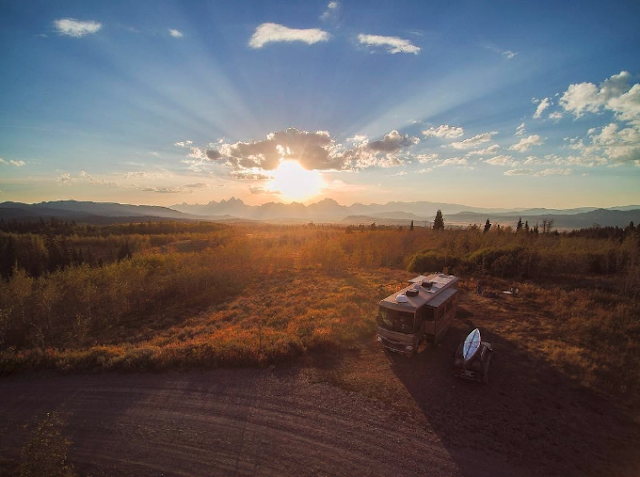
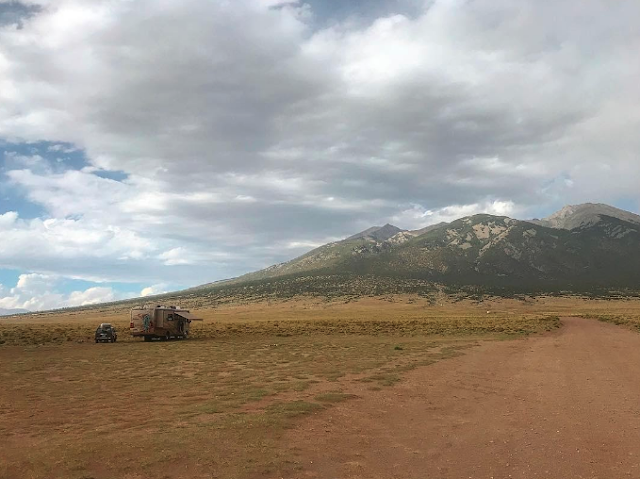

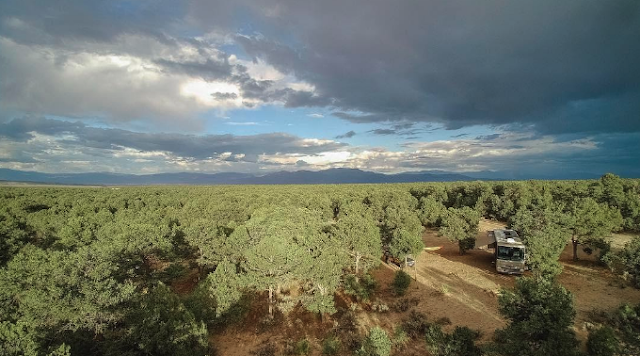
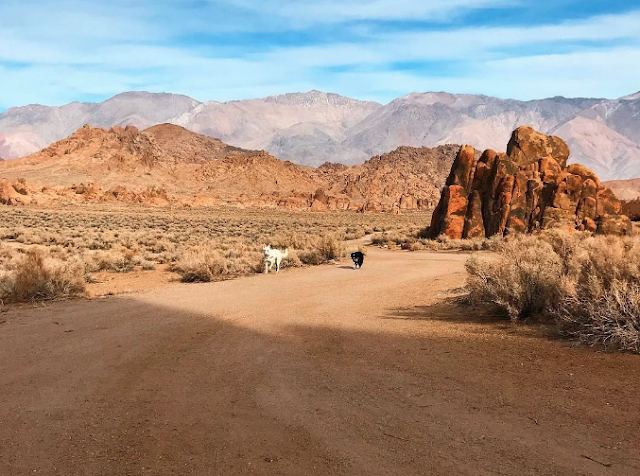
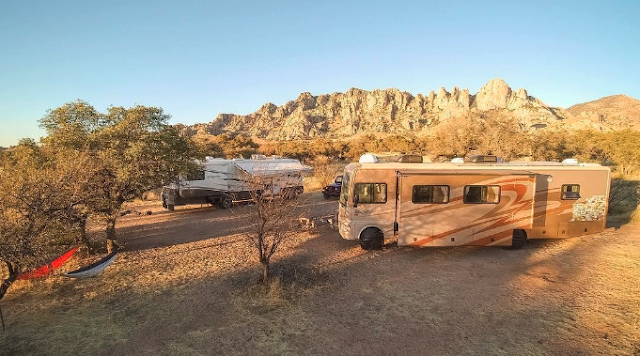


0 Responses
One thing you did not mention is special considerations if you elect to boondock, such as fresh water, grey water, and black water. The amount of liquids in holding tanks adds to the gross vehicle weight and may add significantly to you trailer tongue weight. Failure to factor in such may put you in a situation where you are beyond towing capacities when going on a boondock venture or in trying to return from one. Hitch weight is significantly influence by you liquid cargo, possibly creating a situation where it is is unsafe to tow.
Better add some advice about what one needs to boondock and battery limitations/concerns. It's not all roses as you imply.
Where do you empty the holding tanks if boondocking
boon docking is great,,,, especially for my wife and our big german Shepard . we have a 29 ft. alumascape trailer so we can stay out for a week or more before we need to dump. we usually go where we are surrounded by God's creations instead of the city .our 2 favorites locations are the s.w desert in the winter and high mountain blm/national forest campsites in the summer .unless it gets tooo hot then we hed to the coast … thanks for the good article .. God bless ! jim
It's the same as if you are camping out in a tent without running water or bathrooms. You use portable potties and save your bags to dispose when you leave and get to a trash area. You use jugs of water for what you need, dispose of used. You use cleansing wipes, etc. Dispose of all trash after you leave and get to a trash area. It's like real camping but with the added convenience and safety of living in an enclosed building.
it's
How does the liquid weight increase? You are merely transferring location of the weight aren’t you? The water moves from
fresh tank to the other tanks filtered through the campers digestion. And groceries Move from cabinet to tank, minus what you burn and sweat. Or am I missing something?
I am boondocking right now in Florida & here are my 'rules' By the way , I am mostly blacktop boondocking !
To dump – I go to the nearest State Park, hook up for the night to fill my tanks, take a nice shower & dump my grey & blackwater tanks ! I travel with 2 German Shepherds & although they are quiet, I always use a leash & pick up after them , it is so refreshing to see them run off leash ! I have been living in my RV for 4 years , it's a 2000 Coachman Mirada & I have become the 'expert' of anything on here that needs repair, the first year in here was an extreme challenge, however, since I traveled the East Coast , State Parks are always so special & camosites are always bigger ! You can boondock anywhere , rest areas are paramount to truckers & RV boondockers alike ! I could write a book about my past,present & definitely future boondocking adventures ! There is nothing more fun & challenging as Boondocking !!!
Make darn sure there is some kind of a relay switch to prevent flow from the tow vehicle’s battery(s) when the tow vehicle’s ignition is switched off. We found out the hard way after running the furnace all night in our pick-up truck camper. Our pick-up batteries were dead the next morning! (As were the camper batteries). If we had not had our construction truck on site we would have been in serious trouble. ( no cell phone service)
I am a spur the moment adventurer so never plan ahead, my biggest concern is safety, i don't want to end up like the couple in Texas. So many crazies out tgere.
Same to us in our Roadtrek we ve been boondocking all over Canada from Newfoundland to Vancouver Island – We also practiced boondocking in New York for 30 days closed to Central Park in Harlem – in Canada i was member of Goodlife Fitness, so i was able to take long showers and sauna for only 45 CAN per month – and off course!! million thanks to friendly parking of Tim Hortons!